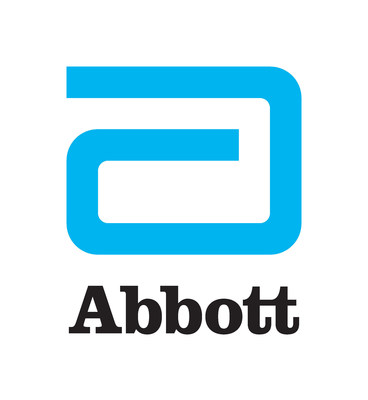Abbott Launches World's First Pivotal Trial to Test New Approach for Repairing Leaky Tricuspid Heart Valves
- TRILUMINATE Pivotal trial is the world's first randomized clinical trial to evaluate transcatheter tricuspid valve repair in patients with severe tricuspid regurgitation
- There are currently no approved transcatheter tricuspid repair treatments, limiting options for patients with leaky tricuspid valves who are at high risk for surgery
- Abbott's TriClip tricuspid valve repair system is built on the company's proven MitraClip technology
ABBOTT PARK, Ill., Sept. 5, 2019 /PRNewswire/ -- Abbott (NYSE: ABT) today announced the launch of the company's TRILUMINATE Pivotal trial to evaluate the safety and effectiveness of the company's TriClip transcatheter tricuspid valve repair system for the treatment of severe tricuspid regurgitation (TR). This is the first pivotal Investigational Device Exemption (IDE) trial in the U.S. to evaluate a catheter-based, non-surgical treatment for patients with severe TR – a condition in which the valve doesn't close properly, allowing blood to flow backward into the heart, which forces the heart to work harder. In severe cases, this condition can potentially lead to heart failure if left untreated.i.ii.iii
In the U.S. alone, approximately one in 30 people over the age of 65 have moderate to severe TRiv. Despite the prevalence of tricuspid valve disease, the tricuspid valve is often referred to as the "forgotten heart valve" as treatment options are limited. There are currently no approved non-surgical, minimally invasive treatments for people with severe TR.
The first enrollments in the TRILUMINATE IDE study occurred at Abbott Northwestern hospital in Minneapolis, Minn., led by Paul Sorajja, M.D., and his cardiac team. Dr. Sorajja also serves as the trial co-primary investigator.
"Patients with symptomatic tricuspid regurgitation are often at an increased risk for conventional surgery. As a result, many are not referred for intervention," said David Adams, M.D., Chairman of the Department of Cardiovascular Surgery at the Icahn School of Medicine at Mount Sinai and the Cardiac Surgeon-in-Chief of the Mount Sinai Health System and co-primary investigator in the trial. "The opportunity to assess how we can better treat these patients with a minimally invasive approach is critical and we're excited about the potential for this therapy in improving the quality of life for these patients."
The TRILUMINATE Pivotal study is a prospective, multi-center, randomized, controlled global study of approximately 700 patients expected to enroll in the United States, Canada, and Europe. Patients will be randomized to receive either the TriClip device or medical therapy and followed for a total of five years. The study will also have a single arm for the treatment of subjects with more complex tricuspid valve disease.
Alongside the TRILUMINATE study, Abbott's TriClip device was accepted for national reimbursement consideration through a process known as "Parallel Review" by the FDA and the Centers for Medicare and Medicaid Services (CMS). The Parallel Review program is a collaborative effort that is intended to reduce the time between FDA approval and Medicare coverage decisions through CMS's National Coverage Determination (NCD) process.[1]
The launch of the TRILUMINATE Pivotal IDE study follows a smaller, single-arm TRILUMINATE trial that was conducted in Europe and the U.S. to evaluate the safety and performance of the TriClip repair system. Results from that study, presented during a late-breaking session at EuroPCR 2019, found that after 30 days, 86.6 percent of patients who received the TriClip device saw a reduction in TR severity of at least one grade. In addition to a strong safety profile for the procedures in patients considered to be at high risk for surgery, a significant proportion of patients also saw an improvement in their heart failure symptoms as assessed using the New York Heart Association (NYHA) functional classification and Kansas City Cardiomyopathy Questionnaire (KCCQ) score.
"While we've made substantial progress on a number of fronts for challenging structural heart conditions, tricuspid regurgitation impacts far too many patients worldwide, and physicians are limited by a lack of meaningful therapy alternatives to surgery," said Neil Moat, M.D., chief medical officer of Abbott's structural heart business. "Early results with our TriClip repair system have been encouraging and we're excited to continue driving innovation that we believe will benefit more patients in the future."
Abbott's transcatheter tricuspid valve repair system is an investigational device only. The TriClip valve repair system is built on the foundation of Abbott's MitraClip system, which has been commercially available in the U.S. since 2013 and in Europe since 2008. With more than 15 years of clinical experience and over 80,000 patients treated worldwide, the MitraClip system is the first and only transcatheter mitral valve therapy with proven safety and survival, and durable clinical outcomes.
For U.S. Important Safety Information about MitraClip, visit: https://www.structuralheartsolutions.com/us/mitraclip-isi.
About Abbott:
Abbott is a global healthcare leader that helps people live more fully at all stages of life. Our portfolio of life-changing technologies spans the spectrum of healthcare, with leading businesses and products in diagnostics, medical devices, nutritionals and branded generic medicines. Our 103,000 colleagues serve people in more than 160 countries.
Connect with us at www.abbott.com, on LinkedIn at www.linkedin.com/company/abbott-/, on Facebook at www.facebook.com/Abbott and on Twitter @AbbottNews and @AbbottGlobal.
i Singh JP, Evans JC, Levy D , et al . Prevalence and clinical determinants of mitral, tricuspid, and aortic regurgitation (the Framingham Heart Study). Am J Cardiol 1999;83:897–902.doi:10.1016/S0002-9149(98)01064-9.
ii Vassileva CM , Shabosky J , Boley T , et al . Tricuspid valve surgery: the past 10 years from the Nationwide Inpatient Sample (NIS) database. J Thorac Cardiovasc Surg 2012;143:1043–9.doi:10.1016/j.jtcvs.2011.07.004.
iii Stuge O , Liddicoat J . Emerging opportunities for cardiac surgeons within structural heart disease. J Thorac Cardiovasc Surg 2006;132:1258–61.doi:10.1016/j.jtcvs.2006.08.049.
iv Topilski Y. Tricuspid valve regurgitation: epidemiology and pathophysiology. Minerva Cardioangiologica 2018 Mar 28 DOI: 10.23736/S0026-4725.18.04670-4).
[1] https://www.federalregister.gov/documents/2016/10/24/2016-25659/program-for-parallel-review-of-medical-devices
SOURCE Abbott

For further information: Abbott Media: Kristi Warner, (651) 756-2085 or Abbott Financial: Mike Comilla, (224) 668-1872
 BACK TO PRESS RELEASES
BACK TO PRESS RELEASES
